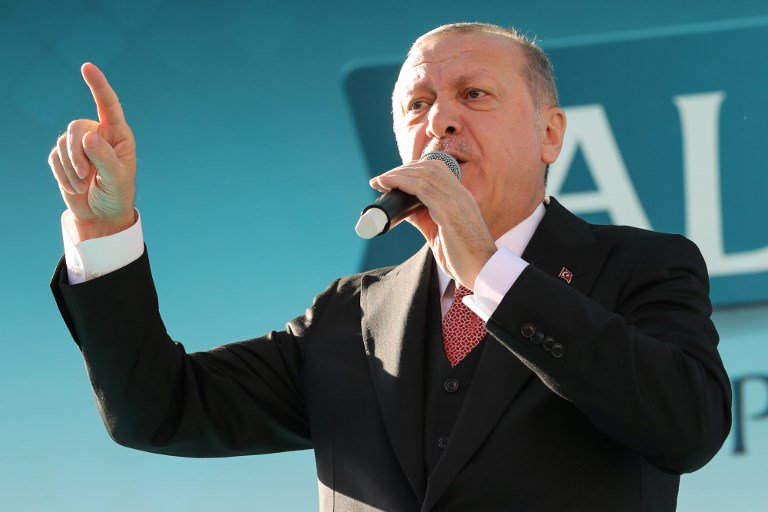By Yasar Yakis
The first EU-Arab League summit took place on Sunday and Monday in Sharm El-Sheikh, Egypt. The framework for institutional cooperation between the EU and Arab League states was agreed in 2015, but this was the first meeting at the summit level. The attendance was impressive from both sides: With few exceptions, countries were represented by kings, presidents and prime ministers.
Multilateralism and the rules-based global order, trade and investment, migration, climate change, security and the situation in the region were the main subjects taken up at the summit. Bearing in mind that the EU is the biggest trading partner of Arab League countries, both the agenda and the side meetings gave ample opportunities for the leaders to exchange views on subjects that are the most important in their bilateral relations.
The summit coincided with a period when Turkey’s relations with EU countries were either getting worse or stagnating at best. It is difficult to foretell how the establishment of an institutional framework between the EU and the Arab League may affect Turkey-EU or Turkey-Arab League relations. Both sets of relations will probably follow their own course according to their own dynamics without having much effect on the other.
The relations between some member countries of the Arab League may become stronger than the relations with a negotiating country like Turkey, because several members of the Arab League already have traditional, time-tested, reliable and broad-based relations with the EU countries.
Turkey lost the appetite for a new wave of accession efforts in light of the strongly negative attitude of many EU countries.
In Germany, Chancellor Angela Merkel has had a consistent policy since the time she was in opposition. She supported the idea that, instead of full membership, Turkey should be given privileged partnership status with the EU, though the exact terms of this partnership have never been explained clearly. Taking into account that the decision to start EU accession negotiations with Turkey was adopted before she became chancellor, she did not oppose the continuation of talks — respecting one of the basic rules of international relations, known as “pacta sunt servanda” (promises have to be fulfilled). Merkel demonstrated the same statesmanship during Germany’s sessional EU presidency.
Turkey’s relations with the EU are now at a standstill. Some EU countries are opposed to the continuation of Ankara’s accession negotiations but, as long as the EU Council does not decide to suspend or to put an end to the talks, the attitude of such countries will not affect Turkey’s position.
The EU has always preferred to keep Turkey at arm’s length, but anchored in transatlantic structures. No member countries have so far wanted to assume the responsibility of stopping the accession process for good.
Some EU countries are opposed to the continuation of Ankara’s accession negotiations but, as long as the EU Council does not decide to suspend or to put an end to the talks, the attitude of such countries will not affect Turkey’s position
Yasar Yakis
The situation is almost the same on Turkey’s side. The government of President Recep Tayyip Erdogan’s Justice and Development Party (AKP) understands that the EU is not ready to resume the negotiations as long as the AKP is in power. On the other hand, the AKP also does not want to assume the responsibility of stopping the accession process, because such a move may erode the support of the electorate. The committee of monitoring the EU reforms, composed of the ministers of foreign affairs, justice, finance and interior, meet from time to time to give the message to the public that Turkey is keeping the process on track.
The number of Turkish citizens in favor of the accession process, which reached a highest rate of more than 80 percent, has now dwindled to just 30 percent. Many in Turkey believe that it will not be easy to revive the process unless a dedicated government makes structural changes in everything that pertains to the accession process.
Furthermore, it will take several years to change the attitude of the publics in EU member countries because, even if Turkey negotiates and concludes an accession agreement with the EU Council, this agreement will have to be ratified by the parliaments of every single EU country. In certain nations, it will be put to a referendum.
Approvals from the parliament of every single EU member country is not a realistic target. Instead, Turkey may have to settle for another target: To use the accession process to put more order to Turkey’s interior. In other words, to make Turkey a country where fundamental rights and freedoms are enjoyed by more people; where democracy functions more or less properly; and a Turkey with a more transparent market economy.
If all these targets are achieved, it will become less important whether Turkey ultimately joins the EU or not.
• Yasar Yakis is a former foreign minister of Turkey and founding member of the ruling AK Party. Twitter: @yakis_yasar



